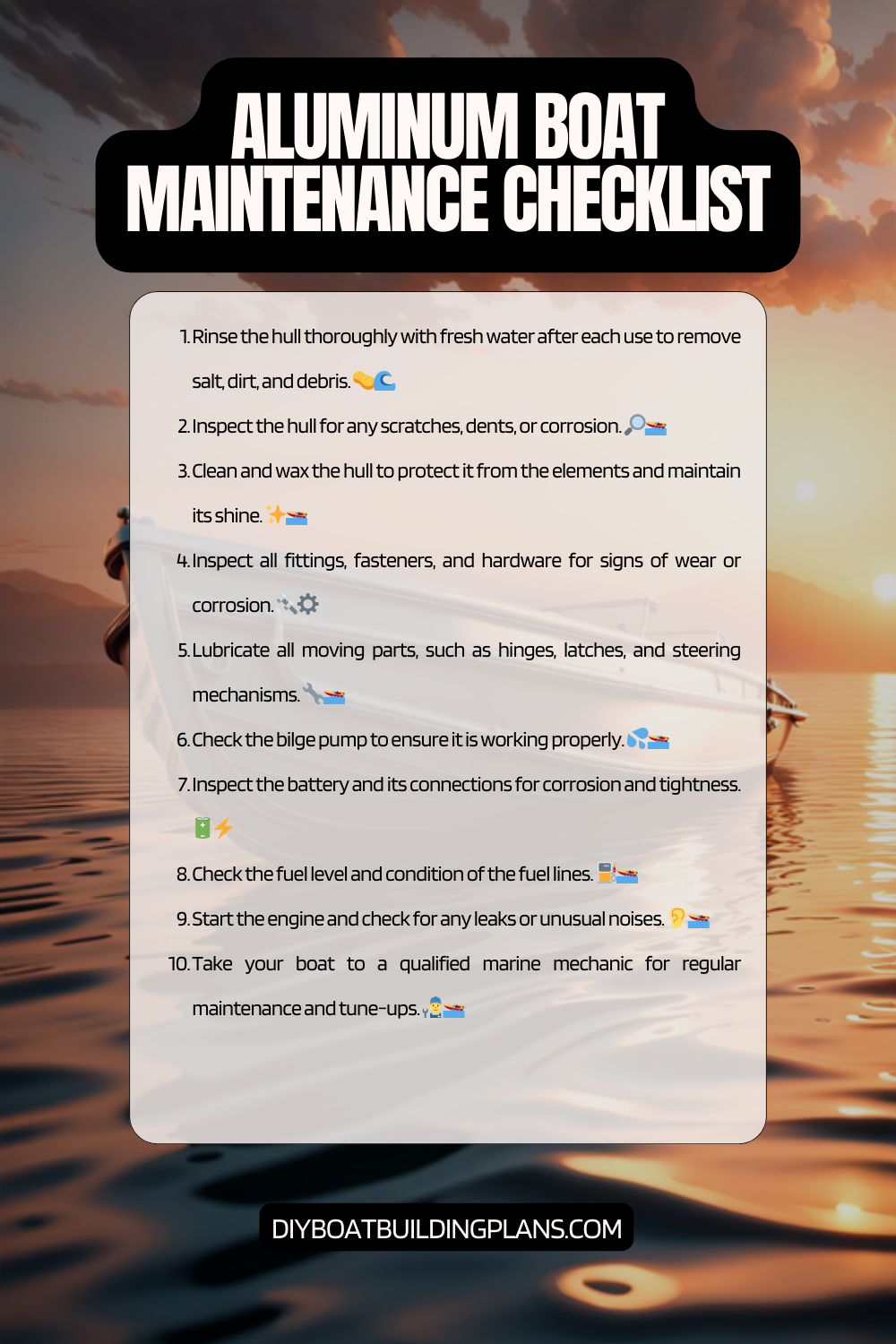Overview of Aluminum Boat Maintenance Tips
Aluminum boats have a rich history that dates back to the early 20th century. They were initially developed for military purposes, but their versatility and durability soon made them popular among recreational boaters as well. The use of aluminum in boat construction offers numerous advantages over other materials such as fiberglass or wood. Aluminum is lightweight, making it easier to transport and maneuver on the water. It is also resistant to corrosion, which is a common issue with boats exposed to saltwater or harsh weather conditions. Additionally, aluminum boats require less maintenance and have a longer lifespan compared to their counterparts.
Key Takeaways
- Regular maintenance is crucial for the longevity and performance of aluminum boats.
- Cleaning and washing the boat regularly can prevent corrosion and damage to the hull and deck.
- Protecting against corrosion with proper coatings and anodes is essential for aluminum boats.
- Maintaining the engine, fuel system, and electrical system is important for safe and efficient boating.
- Winterizing your aluminum boat properly can prevent damage and ensure it’s ready for the next season.

Importance of Regular Maintenance
Regular maintenance is crucial for keeping an aluminum boat in optimal condition. Neglecting maintenance can lead to a range of issues that can affect the performance and safety of the boat. One of the primary consequences of neglecting maintenance is corrosion. Aluminum boats are not immune to corrosion, especially when exposed to saltwater or other corrosive elements. Failure to address corrosion can weaken the structure of the boat, leading to leaks and other structural problems. Regular maintenance also helps identify and address any mechanical issues before they escalate into major problems that can be costly to repair.
Cleaning and Washing Tips
Properly cleaning and washing an aluminum boat is essential for maintaining its appearance and preventing corrosion. Start by rinsing the boat with fresh water to remove any loose dirt or debris. Use a mild detergent or boat soap specifically designed for aluminum boats to clean the surface thoroughly. Avoid using abrasive cleaners or brushes that can scratch the aluminum. Instead, use a soft sponge or cloth to gently scrub the boat’s surface. Rinse the boat again with fresh water after cleaning to remove any residue.
When it comes to cleaning products, there are several options available on the market. Look for cleaners that are specifically formulated for aluminum boats and are environmentally friendly. These cleaners are designed to remove dirt, grime, and stains without damaging the aluminum. Some products also offer additional protection against corrosion, which can be beneficial in prolonging the lifespan of your boat.
Protecting Against Corrosion
| Method | Effectiveness | Cost |
| Painting | Good | Low |
| Galvanization | Excellent | High |
| Coatings | Varies | Varies |
| Cathodic Protection | Excellent | High |
| Corrosion Inhibitors | Varies | Varies |
Corrosion is a common issue faced by aluminum boat owners, especially those who frequently use their boats in saltwater environments. Understanding the causes of corrosion and taking preventive measures can help protect your boat from this damaging process. One of the primary causes of corrosion in aluminum boats is galvanic corrosion, which occurs when two dissimilar metals come into contact with an electrolyte, such as saltwater. To prevent galvanic corrosion, it is essential to install sacrificial anodes on your boat. These anodes are made of a more active metal, such as zinc or aluminum, and they sacrifice themselves to protect the aluminum hull from corrosion.
Regularly inspecting and replacing anodes is crucial for maintaining their effectiveness. Anodes should be checked at least once a year or more frequently if you frequently use your boat in saltwater. If anodes are significantly corroded or worn out, they should be replaced immediately to ensure continued protection against corrosion.
Maintaining the Hull and Deck
Proper maintenance of the hull and deck is vital for preserving the structural integrity and appearance of your aluminum boat. Regularly inspect the hull for any signs of damage, such as dents or scratches. These can compromise the boat’s performance and make it more susceptible to corrosion. If you notice any damage, it is important to address it promptly by repairing or replacing the affected area.
Cleaning the hull and deck regularly is also essential for preventing corrosion and maintaining the boat’s appearance. Use a mild detergent or boat soap specifically formulated for aluminum boats to clean the surface thoroughly. Avoid using abrasive cleaners or brushes that can scratch the aluminum. After cleaning, apply a protective wax or coating to provide an additional layer of defense against corrosion.
Checking and Replacing Anodes
Anodes play a crucial role in protecting the aluminum hull of your boat from galvanic corrosion. These sacrificial metals are designed to corrode instead of the aluminum, effectively sacrificing themselves to protect the hull. Regularly checking and replacing anodes is essential for maintaining their effectiveness.
To check the condition of anodes, visually inspect them for signs of significant corrosion or wear. If anodes appear significantly corroded or worn out, they should be replaced immediately. It is recommended to replace anodes at least once a year or more frequently if you frequently use your boat in saltwater.
When replacing anodes, ensure that you use the correct type and size for your boat. Anodes come in various shapes and sizes, so consult your boat’s manual or seek advice from a marine professional to ensure you choose the appropriate anodes for your specific boat.
Maintaining the Engine and Fuel System
Proper maintenance of the engine and fuel system is crucial for ensuring the reliable performance of your aluminum boat. Regularly inspecting and servicing the engine can help identify any potential issues before they escalate into major problems.
Start by checking the engine oil level and condition regularly. Change the oil as recommended by the manufacturer to ensure optimal engine performance. Inspect the fuel system for any signs of leaks or damage. Replace fuel filters as recommended by the manufacturer to prevent clogs and maintain fuel efficiency.
Additionally, it is important to use high-quality fuel additives designed to clean and protect the fuel system. These additives can help remove deposits, prevent corrosion, and improve overall engine performance.
Lubrication and Greasing
Lubrication and greasing play a vital role in maintaining the moving parts of your aluminum boat. Regularly lubricating hinges, latches, steering mechanisms, and other moving parts can help prevent rusting, corrosion, and excessive wear.
Use a marine-grade lubricant or grease specifically formulated for boat applications. Apply the lubricant or grease as recommended by the manufacturer, ensuring that you cover all necessary areas. Regularly inspect these parts for any signs of wear or damage and address any issues promptly.
Download over 500 Boat Plans. Click on the link below.
-->Click Here<--
Electrical System Maintenance
Proper maintenance of the electrical system is essential for the safe and reliable operation of your aluminum boat. Regularly inspect the wiring, connections, and electrical components for any signs of wear, corrosion, or damage. Replace any damaged or corroded components immediately.
To clean and protect the electrical system, use a specialized electrical contact cleaner. This cleaner is designed to remove dirt, grime, and corrosion from electrical connections without damaging the components. After cleaning, apply a protective coating or dielectric grease to prevent future corrosion.
Winterizing Your Aluminum Boat
Properly winterizing your aluminum boat is crucial for protecting it during the colder months when it is not in use. Start by thoroughly cleaning the boat to remove any dirt, grime, or salt residue. Drain all water from the boat’s systems, including the engine cooling system, bilge pumps, and livewells.
Next, apply a protective wax or coating to the hull and deck to provide an additional layer of defense against corrosion during storage. Remove any electronics or valuable items from the boat to prevent theft or damage.
Finally, cover your boat with a high-quality boat cover specifically designed for winter storage. This will protect your boat from the elements and help prevent moisture buildup.
Aluminum Boat Maintenance Checklist

Conclusion – Aluminum Boat Maintenance Tips
Regular maintenance is essential for keeping your aluminum boat in optimal condition and ensuring its longevity. By following these maintenance tips, you can protect your investment and enjoy many years of safe and enjoyable boating. Remember to regularly clean and wash your boat, protect against corrosion, maintain the hull and deck, check and replace anodes, maintain the engine and fuel system, lubricate and grease moving parts, maintain the electrical system, and properly winterize your boat. By taking these steps, you can enjoy the full benefits of owning an aluminum boat for years to come.
FAQs – Aluminum Boat Maintenance Tips
What are some common maintenance issues with aluminum boats?
Some common maintenance issues with aluminum boats include corrosion, dents, scratches, and leaks.
How can I prevent corrosion on my aluminum boat?
To prevent corrosion on your aluminum boat, you should regularly wash it with fresh water, avoid leaving it in saltwater for extended periods of time, and apply a protective coating or wax.
What should I do if my aluminum boat has dents or scratches?
If your aluminum boat has dents or scratches, you should sand the affected area and apply a filler or patching compound. You can also use a marine-grade aluminum polish to restore the boat’s appearance.
How can I fix leaks in my aluminum boat?
To fix leaks in your aluminum boat, you should first locate the source of the leak. Once you have identified the area, you can use a marine-grade sealant or epoxy to seal the leak.
What should I do to maintain the engine of my aluminum boat?
To maintain the engine of your aluminum boat, you should regularly change the oil and filters, check the spark plugs, and inspect the fuel system for any leaks or damage. You should also follow the manufacturer’s recommended maintenance schedule.



